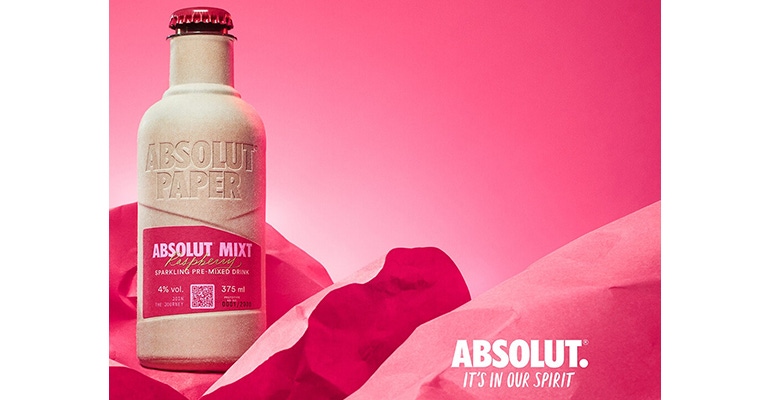Pernod Ricard Determined to Deliver on Sustainability Commitments
The company has pledged to make 100% of its packaging recyclable, reusable, compostable, or bio-based by 2025.
February 23, 2021

Pernod Ricard has grown to be the world’s number two in wines and spirits since the group was created in 1975, based on both organic growth and the acquisitions of Seagram in 2001, Allied Domecq in 2005, and Vin&Spirit in 2008. Today the company owns 16 of the top 100 spirits brands; its portfolio includes Absolut Vodka, Ricard pastis, Ballantine’s, and Chivas Regal.
Pernod Ricard’s circular roadmap includes a commitment that 100% of its packaging will be recyclable, reusable, compostable, or bio-based by 2025. The company recently released a progress report as well as plans for future bottle types.
I reached out to Pernod Ricard when I was doing research for the article, “Paper Bottles Are Not a Sustainable Alternative to Plastic Bottles.” The company’s plans to develop a paper bottle has garnered a lot of attention, and the Absolut paper bottle prototype will mark the brand’s first step to a fully bio-based bottle. But there must be a plastic liner in the bottle to keep the contents from soaking through the paper bottle. I asked the company how, in that case, the bottle could be “plastic free?” I just received a response.
“Yes, the recycled plastic in this initial prototype is there as a barrier,” replied Nicolas Appelquist, Innovation Director, Future of Packaging at The Absolut Company. “We are currently testing other materials to be used as barriers, with the goal of creating a fully bio-based bottle.”
Beefeater Gin just unveiled a new 100% recyclable bottle with a premium embossed aluminum cap replacing the existing cap. The label also was changed from plastic to paper "for a crafted, elegant feel, saving over 400 tons of plastic each year." The bottle has just been launched in Spain, Beefeater’s number one market, and will roll out worldwide in Q3 2021.
In response to PlasticsToday’s inquiry, the company explained that the new Beefeater bottle is 100% glass, 100% recyclable, and contains up to 35% recycled content. "The paper label is self-adhesive and is fixed to the bottle using an acrylic-based adhesive," said Murielle Dessenis, Global Brand Director. "The labels are easily broken down in the recycling process, from glass to cullet, by being washed or blown away. Any remaining debris burns off in the glass furnace. It’s our aim to reduce the amount of plastic in our packaging as much as possible,” added Dessenis.
PlasticsToday appreciates Pernod Ricard taking the time to answer our questions as it continues to search for bottles that are “100% recyclable, reusable, compostable, or bio-based packaging by 2025.” Yet, I sense a reluctance to use some of the technology that the packaging industry has developed to make packaging more recyclable without the added use of energy, water, and chemicals to recycle glass and remove labels from packaging. In-mold labeling has been one of the amazing advances the packaging industry has made to enhance recycling without the need to take extra steps to remove labels.
At the end of the day, recyclable plastics and labels can go a long way to preserving resources.
About the Author(s)
You May Also Like




